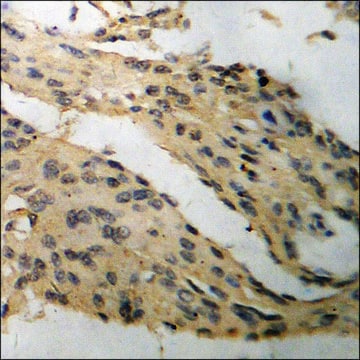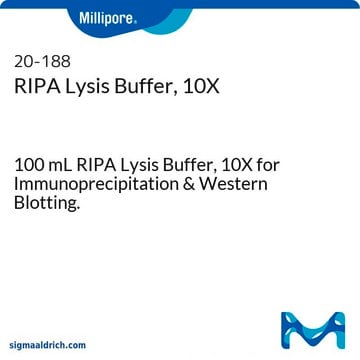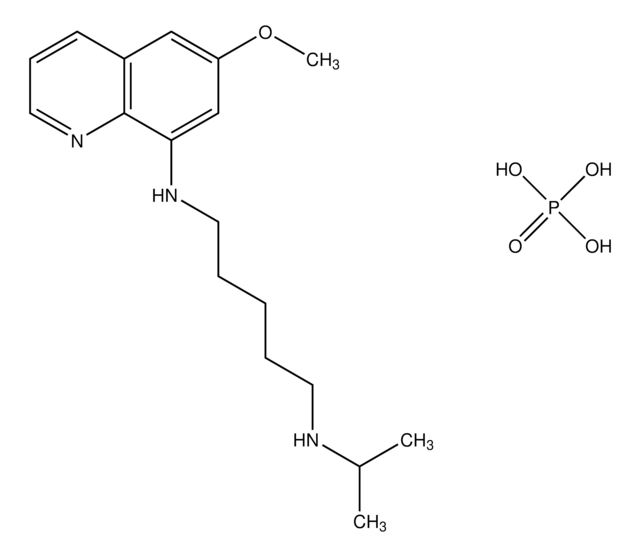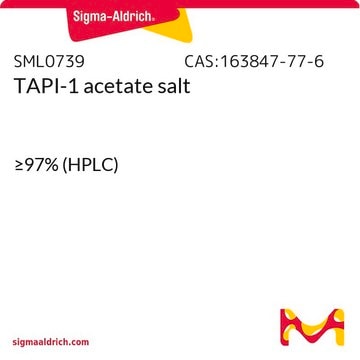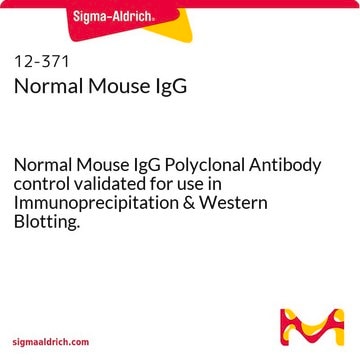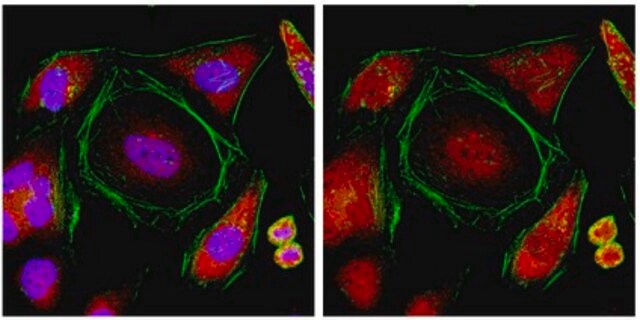ABE558
Anti-Ku70 Protein Antibody
from rabbit
Synonym(s):
X-ray repair cross-complementing protein 6, 5′-deoxyribose-5-phosphate lyase Ku70, 5′-dRP lyase Ku70, 70 kDa subunit of Ku antigen, ATP-dependent DNA helicase 2 subunit 1, ATP-dependent DNA helicase II 70 kDa subunit, CTC box-binding factor 75 kDa subuni
About This Item
Recommended Products
biological source
rabbit
Quality Level
antibody form
purified antibody
antibody product type
primary antibodies
clone
polyclonal
species reactivity
human
technique(s)
immunohistochemistry: suitable (paraffin)
immunoprecipitation (IP): suitable
western blot: suitable
NCBI accession no.
UniProt accession no.
shipped in
wet ice
target post-translational modification
unmodified
Gene Information
human ... XRCC6(2547)
Related Categories
General description
Specificity
Immunogen
Application
Immunohistochemistry Analysis: A 1:250 dilution from a representative lot detected Ku70 Protein in human prostate carcinoma cells and human testis tissue.
Epigenetics & Nuclear Function
Chromatin Biology
Quality
Western Blotting Analysis: 0.5 µg/mL of this antibody detected Ku70 Protein in 10 µg of HeLa cell lysate.
Target description
Linkage
Physical form
Storage and Stability
Analysis Note
HeLa cell lysate
Other Notes
Disclaimer
Not finding the right product?
Try our Product Selector Tool.
Storage Class Code
12 - Non Combustible Liquids
WGK
WGK 1
Flash Point(F)
Not applicable
Flash Point(C)
Not applicable
Certificates of Analysis (COA)
Search for Certificates of Analysis (COA) by entering the products Lot/Batch Number. Lot and Batch Numbers can be found on a product’s label following the words ‘Lot’ or ‘Batch’.
Already Own This Product?
Find documentation for the products that you have recently purchased in the Document Library.
Our team of scientists has experience in all areas of research including Life Science, Material Science, Chemical Synthesis, Chromatography, Analytical and many others.
Contact Technical Service

